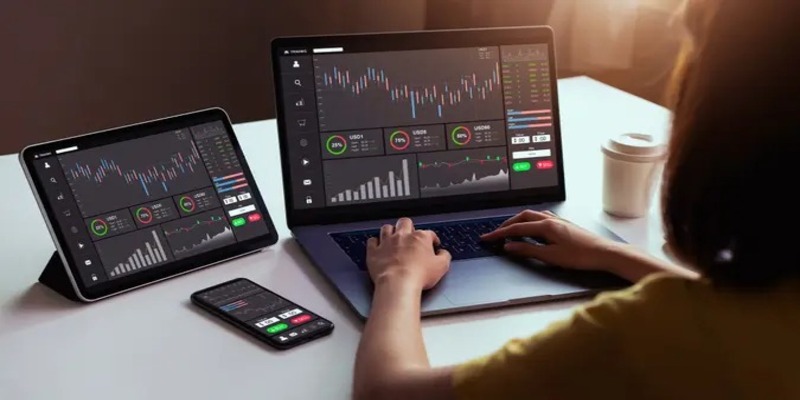Most Reliable Exchange Traded Funds For Commodities
Oct 04, 2023 By Triston Martin
As oil prices stay at their highest level in eight years, the three best-performing commodities funds have gained as much as 47% over the past year by providing investors with exposure to energy prices.
Futures contracts commodities such as crude oil, natural gas, gasoline, and heating oil are the focus of the Invesco DB Energy Fund, the U.S. Gasoline Fund, and the U.S. States Brent Oil Fund. Exchange-traded funds offer exposure to commodities rather than the corporations producing them.
United States Gasoline Fund LP

UGA is organized as a commodity pool, a type of private investment organization that pools the money of several investors for trading best commodity etfs to buy now futures and options. Intentionally made to monitor gas prices, it does just that.
By purchasing futures contracts on reformulated gasoline blendstock for oxygen blending and other gasoline-related commodities, the ETF allows investors to speculate on an increase in gasoline costs. Forwards and swap contracts are another possible investment option for the fund.
United States Brent Oil Fund
Similar to commodity pools, BNO is organized in this way. The daily percentage change in BNO's NAV per share is intended to track the daily percentage change in the spot price of Brent Crude oil. The ETF uses an ICE Futures Exchange near-month futures contract as its primary metric.
BNO is an excellent strategy to diversify your exposure to oil prices because Brent Crude is sometimes traded at a discount to West Texas Intermediate. Brent Crude Oil futures contracts make up the bulk of its portfolio.
Invesco DB Energy Fund
DBE follows suit as a commodity pool in its organization, like the other two funds. It buys futures contracts on natural gas, gasoline, light sweet crude oil (WTI), and Brent crude oil.
The fund gives investors a simple and low-effort option to speculate on energy commodity futures markets. However, not all investors should put their money into the fund because it primarily targets investments in markets with significant levels of volatility.
Commodities: What Do They Mean?
Commodities are the staples of agriculture and the raw materials utilized in manufacturing. The commodities market is the worldwide exchange for these essential resources. There are two main types of commodities: hard commodities and soft commodities.
Commodities considered "hard" include metals, oil, and coal, all of which require special machinery to extract. Livestock and other agricultural products are examples of soft commodities.
How Do Commodity Futures Work?
Futures contracts are used in the trading of the goods above. This derivative is similar to options in that it involves an agreement to buy or sell a commodity at some future time. Most futures contracts are settled before delivery, much like the options market.
In contrast to the options market, the primary motivation for futures trading is the fulfilment of contractual obligations to provide goods and services to customers. Commodities producers and consumers make up the vast majority of traders in the futures markets.
They do so because they want to hedge their investments against price fluctuations and increase their profits. Futures contracts are also actively traded by speculators who anticipate price fluctuations to make a profit.
The Benefits of Buying Commodities Exchange Traded Funds

One of the most important reasons to put money into commodities is that their values tend to rise with inflation. The rising cost of commodities is a proven hedging strategy against inflation. The commodity market has a low correlation to traditional asset classes.
Thus, diversifying into commodities helps lessen overall portfolio volatility and risk. Commodities may be a solid long-term investment opportunity in favourable market circumstances.
The use of ETFs, in general, has its benefits. Comparatively speaking, closed-end funds have fewer operating expenses than open-ended mutual funds, more transparency, and better tax efficiency for taxable portfolios.
Commodity Exchange Traded Funds and Their Potential Dangers
Commodity exchange-traded funds are categorized into four distinct groups, each with its own set of potential dangers we've covered—the inherent risks of commodities exchange-traded funds need to be discussed.
To begin, these funds frequently hover between the contango and backwardation curves. This commodity's future price is expected to be greater than its current price, a market condition known as contango. When the price of an item is backwardated, it falls in the future.

Triston Martin Nov 11, 2023
Review of the Citi Credit Cards mobile app
86167

Susan Kelly Oct 13, 2023
Cases of Estate Plans Involving Family Limited Liability Companies
42886

Susan Kelly Nov 09, 2023
Navigate Back-to-School Shopping Twists
70849

Susan Kelly Oct 20, 2023
A Floating Interest Rate Is Exactly What?
91828

Susan Kelly Dec 02, 2023
What Are The Benefits Of Government Student Loans?
19338

Susan Kelly Nov 17, 2023
The Top Installment Loans For Poor Credit Scores In 2022
31817

Susan Kelly Oct 14, 2023
What Credit Score Do I Need to Buy a House?
47674

Triston Martin Nov 30, 2023
Understanding Gap Insurance: A Comprehensive Guide
36503